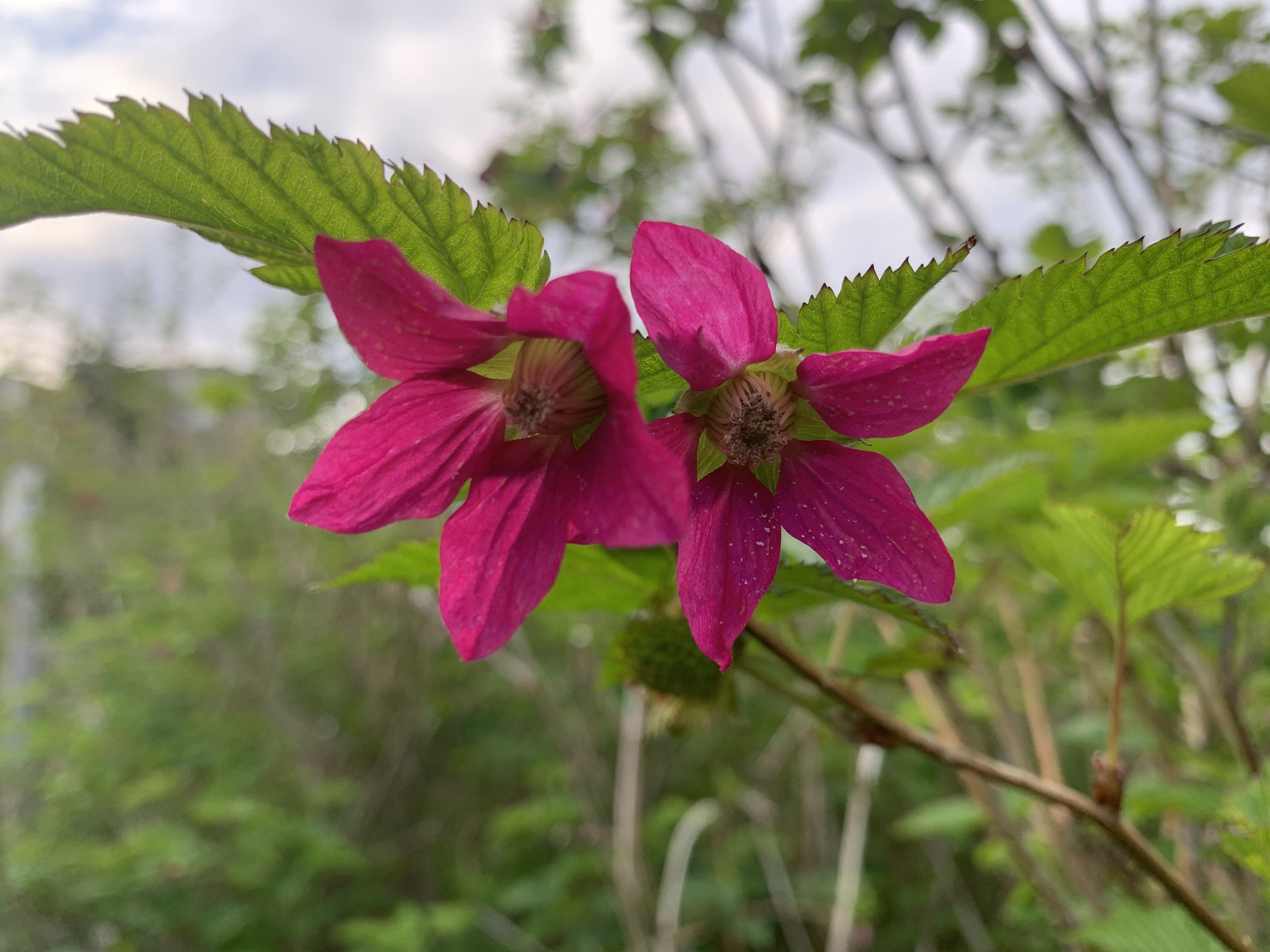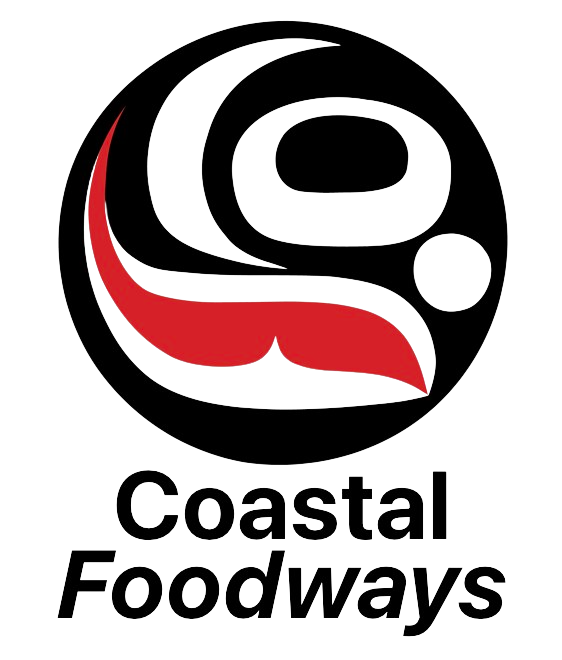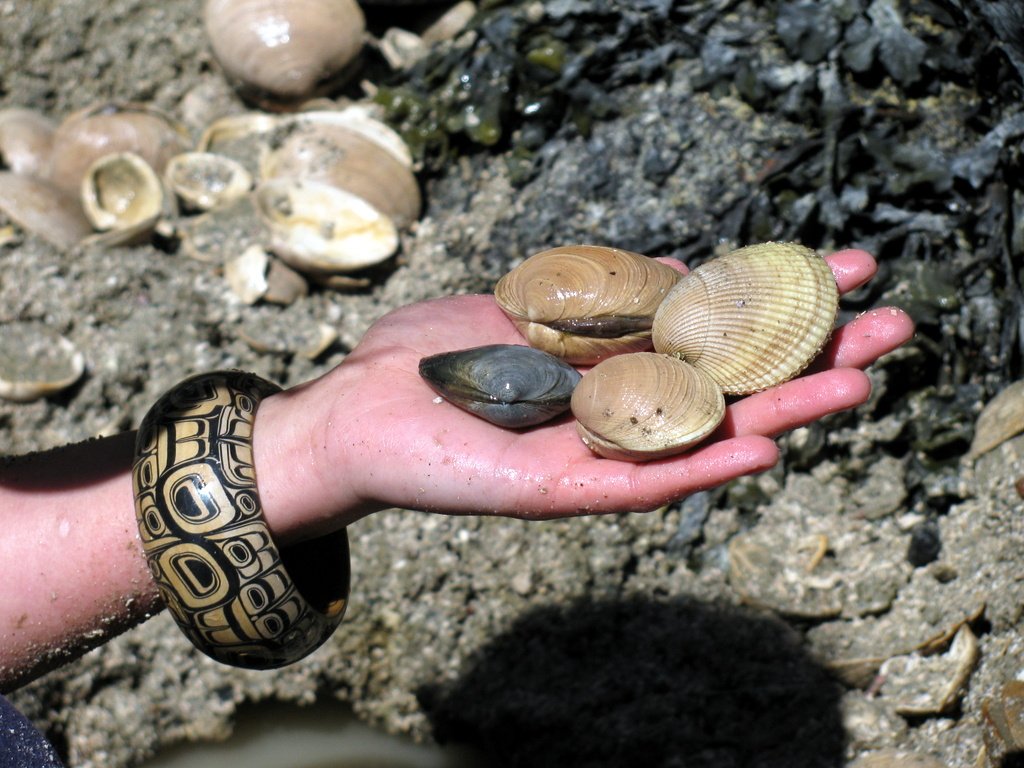
Background
Central Coast communities face unique challenges in the food sector: we are geographically remote, even from each other; we are reliant on precarious and expensive shipping systems; we are particularly vulnerable to climate change on the margins of the coast; and we face a dearth of information that is specific to our needs and climate.
Despite these challenges, Central Coast communities are also resilient, building programs that raise greenhouses and grow community gardens, support household gardening, fill food banks, hire underemployed commercial fishers to bring ancestral foods into Indigenous communities, enhance salmon stocks, implement restoration initiatives, run community kitchens, revitalize berry orchards and ancient fruit trees, plant food forests, and much more.
Our communities are each doing important work to address food systems resiliency in our own ways; we deserve holistic support to build on our individual and collective strength and elevate our food work through meaningful and adequately resourced collaboration.
It’s time to become intimate with our food systems and nurture nutritious abundance as an act of community care, a liberatory practice that upholds all of us through the joyful work of meeting the basic human need to sustain ourselves and our loved ones in alignment with our ancestral values of reciprocity and sustainability.
Leadership
The project is led by Jess Housty, a Heiltsuk parent and food champion and resident of the Central Coast with more than two decades of experience supporting community-led programs. Jess began her work in food security at Qqs (Eyes) Projects Society by founding the La̓iás Community Garden in 2017, the Granny Gardens program in 2020, and Granny’s Kitchen and the Bákvḷá Harvester Program in 2021.
Through this Heiltsuk-focused work, Jess has had the opportunity to connect with local food champions in other Central Coast communities and observed gaps related to education, training, and cross-community/regional support that we believe will be filled through this new project.
Jess has also supported rural and remote Indigenous communities across BC as an Indigenous Food Systems Specialist informing provincial food funding programs, as a founding member of the Indigenous Food-related Wellness Advisory, and as a participant in several regional, provincial, and national food security networks.
Jess leads this work with the support of an all-Indigenous, all-women Board of Directors with an aspiration to grow the organization to include staff and volunteers throughout the Central Coast of BC.
Why Now?
The pandemic has thrown into sharp relief the precarity of our supply chains and our dependence on unsustainable, unreliable food products and delivery services operating at a global scale. And climate change forces us to confront how we must change our practices to align with our ancestral values of sustainability and reciprocity, and how we can increase our agency and resilience by localizing our food systems and rooting them in community care.
We have an opportunity to develop this in the way we know works best: through a holistic approach that maximises community agency and engagement and creates the conditions for collective thriving. We want to give people the skills, confidence, practices, self-love/community care, tools, training, and opportunities to become informed and empowered food champions – so we can develop local food systems that mirror ancestral resilience and invite future thriving.
Our logo is an original design by Heiltsuk artist Blake Carpenter representing a salmon inside an egg. We chose this design to honour the important role that salmon play as a food source in the region, and in providing nourishment to wild ecosystems that support our plant and animal kin to thrive.



